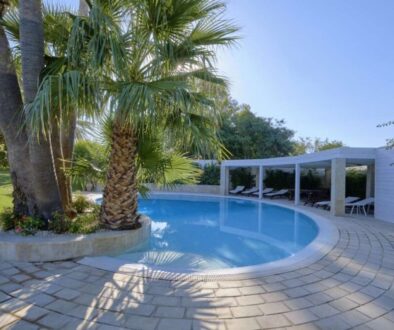How to Use GPS to Save Hours on Your Pool Route
Using GPS technology can streamline your pool route, save time, and enhance your productivity. Learn how to implement GPS effectively for efficient pool service management.
Introduction
In the competitive world of pool maintenance, time is money. As a pool service provider, your efficiency directly impacts your bottom line. This article explores how utilizing GPS technology can help you save hours on your pool route, enhancing productivity and service quality. We will discuss the benefits of GPS in route optimization, how to choose the right GPS system, and best practices for integration into your daily operations.
The Importance of Route Optimization
Route optimization is a critical factor in running a successful pool service business. By minimizing travel time between jobs, you can significantly reduce fuel costs and increase the number of clients you serve in a day. A recent study found that businesses using optimized routes can save up to 30% on fuel expenses. For pool service companies, this translates into more time spent on actual pool maintenance and fewer hours wasted on the road.
GPS systems can assist in this optimization process by providing real-time traffic updates and the fastest routes. Many GPS applications offer features that consider factors such as traffic congestion and road closures. By analyzing these data points, you can adjust your daily route to avoid delays. For example, if you are operating in a city like Dallas or Houston, where traffic can be unpredictable, having an efficient GPS system can help you navigate effectively.
Choosing the Right GPS System
Not all GPS systems are created equal, and selecting the right one for your pool service business is essential. Consider features that are specifically designed for service-oriented businesses, such as route planning and scheduling tools. Look for GPS systems that allow you to input multiple stops and automatically reorder them for the most efficient path.
Another important factor is ease of use. Your team should be able to quickly learn how to utilize the system without extensive training. Furthermore, consider systems that provide mobile applications, enabling your technicians to access navigation on the go. This is particularly beneficial in a multi-city operation like those in Florida or Texas, where routes can vary significantly from one area to another.
In addition to navigation, some GPS systems offer tracking features that allow you to monitor your fleet’s movements in real time. This capability can help you manage your team more effectively and ensure accountability. For those interested in expanding their pool service operations, investing in a comprehensive GPS system can prove invaluable.
Integrating GPS into Your Daily Operations
Once you have chosen the right GPS system, the next step is to seamlessly integrate it into your daily operations. Start by training your team on how to use the GPS system effectively. Conduct hands-on training sessions, allowing your technicians to practice using the system in real-world scenarios. Familiarizing them with the technology will enhance their confidence and efficiency when using it in the field.
Next, establish a routine for daily route planning. For example, each morning, review your scheduled appointments and input them into the GPS system. This proactive approach ensures that your technicians are always equipped with the most efficient routes, leading to reduced travel times and increased customer satisfaction.
Regularly review the performance of your GPS system and be open to adjusting your routes based on feedback from your team. Encourage them to communicate any difficulties or areas for improvement. This collaborative approach not only boosts morale but also enhances the overall efficiency of your operations.
Utilizing GPS for Customer Relationship Management
In addition to improving route efficiency, GPS technology can also enhance customer relationship management (CRM). By having accurate arrival times and being able to communicate these to your clients, you can improve your service quality significantly. This transparency builds trust and respect with your customers, leading to long-term relationships.
Consider investing in a CRM system that integrates with your GPS software. This will allow you to track customer interactions, schedule appointments efficiently, and send automated notifications about arrival times or delays. By streamlining communication, you can ensure a more professional image and foster customer loyalty.
Expanding Your Pool Service with GPS Insights
For pool service entrepreneurs looking to expand their business, GPS technology provides invaluable insights. By analyzing route data, you can identify areas of high demand, allowing you to strategically focus your marketing efforts. For instance, if you notice a concentration of clients in a specific neighborhood, consider targeting that area with promotional campaigns.
Moreover, GPS data can help you determine the optimal times for service calls, allowing you to schedule jobs when clients are most likely to be home. This tactic not only increases customer satisfaction but also boosts your chances of upselling additional services.
The Role of GPS in Safety and Compliance
Safety is a crucial aspect of any service-oriented business. GPS technology can enhance safety by providing real-time tracking of your vehicles, ensuring that your team members are safe while on the road. In the event of an accident or emergency, GPS data can help locate your technicians quickly and efficiently.
Additionally, compliance with local regulations is essential in the pool service industry. By utilizing GPS systems, you can ensure that your routes adhere to any municipal guidelines regarding operating hours or service zones. Staying compliant not only protects your business but also enhances your reputation in the community.
The Future of GPS in Pool Services
The future of GPS technology in the pool service industry appears promising. As advancements in technology continue, we can expect to see even more sophisticated GPS systems offering enhanced features. For example, artificial intelligence (AI) is beginning to play a role in optimizing routes based on historical data and predictive analytics.
As you look ahead, consider how you can leverage these advancements to your advantage. Stay informed about emerging technologies and be willing to adapt your systems accordingly. Those who embrace change will lead the way in the evolving pool maintenance landscape.
Conclusion
In conclusion, utilizing GPS technology in your pool service operations can save you significant time and resources. By optimizing routes, enhancing customer communication, and leveraging valuable insights, you can streamline your operations and focus on growth. The investment in a quality GPS system can pay dividends in productivity and profitability.
If you’re ready to take your pool service business to the next level, consider exploring Pool Routes for Sale. With the right tools and strategies, you can build a thriving pool maintenance operation that stands out in a competitive market. Contact us today to discover how we can assist you in finding the perfect pool route for your business needs.



